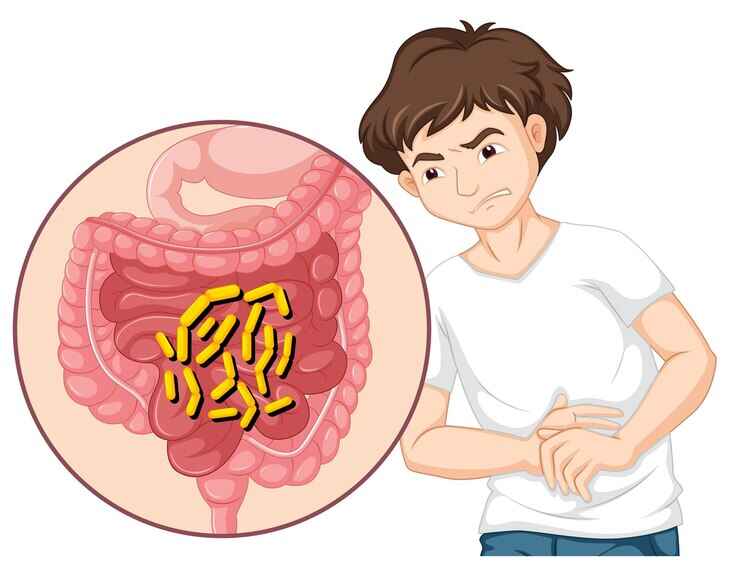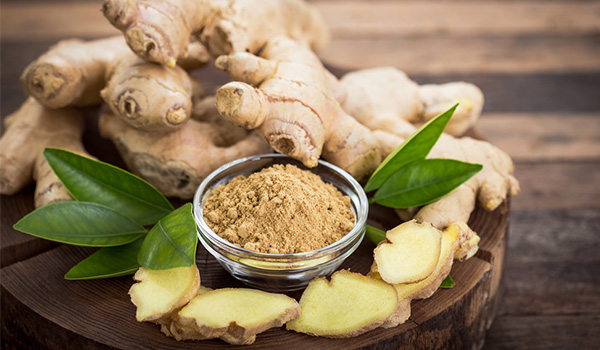Simple Home Remedies for Diarrhea

Diarrhea is a common digestive issue characterized by loose, watery stools and frequent bowel movements. It can be caused by various factors, including infections, food intolerances, medications, and digestive disorders. While most cases of diarrhea are mild and resolve on their own, it can be uncomfortable and inconvenient. Simple home remedies can help alleviate symptoms and speed up recovery. In this blog post, we will explore effective home remedies for managing diarrhea, along with tips on prevention and when to seek medical attention.
Understanding Diarrhea
Before diving into the remedies, it’s important to understand the common causes and symptoms of diarrhea.
Common Causes:
- Infections: Bacterial, viral, or parasitic infections can lead to diarrhea. Common pathogens include E. coli, Salmonella, and norovirus.
- Food Intolerances: Lactose intolerance and gluten sensitivity are known to cause diarrhea in some individuals.
- Medications: Certain medications, such as antibiotics, can disrupt the balance of gut bacteria and cause diarrhea.
- Digestive Disorders: Conditions like irritable bowel syndrome (IBS), Crohn’s disease, and ulcerative colitis can result in chronic diarrhea.
- Stress and Anxiety: Emotional stress and anxiety can affect gut motility and lead to diarrhea.
Diarrhea Symptoms:
- Frequent, loose, watery stools
- Abdominal cramps and pain
- Bloating
- Nausea and vomiting
- Dehydration
Effective Home Remedies for Diarrhea
1. Stay Hydrated
Importance of Hydration:
- Fluid Replacement: Diarrhea can lead to significant fluid loss, increasing the risk of dehydration. It is crucial to replace lost fluids to maintain hydration and electrolyte balance.
- Oral Rehydration Solutions (ORS): ORS is a simple, effective way to replenish fluids and electrolytes. You can make an ORS at home by mixing 1 liter of water with 6 teaspoons of sugar and 1/2 teaspoon of salt.
Homemade ORS Recipe:
- Ingredients:
- 1 liter of clean water
- 6 teaspoons of sugar
- 1/2 teaspoon of salt
- Instructions:
- Mix the sugar and salt into the water until fully dissolved.
- Sip the solution throughout the day to stay hydrated.
2. Follow the BRAT Diet
What is the BRAT Diet?
- Bananas, Rice, Applesauce, Toast: The BRAT diet consists of bland, low-fiber foods that are easy on the digestive system. These foods help firm up stools and reduce the frequency of bowel movements.
Components of the BRAT Diet:
- Bananas: Rich in potassium, bananas help replenish electrolytes lost during diarrhea. They also contain pectin, which helps absorb excess water in the intestines.
- Rice: Plain white rice is easy to digest and helps bind stools.
- Applesauce: Applesauce is soothing to the digestive tract and provides soluble fiber to help bulk up stools.
- Toast: Plain toast is gentle on the stomach and helps absorb excess fluid in the intestines.
3. Ginger Tea

Benefits of Ginger:
- Anti-Inflammatory Properties: Ginger has natural anti-inflammatory properties that help soothe the digestive tract and reduce irritation.
- Anti-Spasmodic Effects: Ginger can help relieve stomach cramps and reduce the frequency of bowel movements.
Ginger Tea Recipe:
- Ingredients:
- 1 inch of fresh ginger root, sliced
- 1 cup of boiling water
- Honey (optional)
- Instructions:
- Place the sliced ginger in a cup.
- Pour boiling water over the ginger and let it steep for 10 minutes.
- Strain the tea and add honey if desired.
- Drink 2-3 times a day for relief.
4. Probiotics
Role of Probiotics:
- Gut Health: Probiotics are beneficial bacteria that help restore the natural balance of gut flora. They can be particularly helpful if diarrhea is caused by antibiotics or infections.
- Sources of Probiotics: Yogurt, kefir, sauerkraut, kimchi, and probiotic supplements are good sources of probiotics.
Probiotic-Rich Foods:
- Yogurt: Choose plain, unsweetened yogurt with live active cultures.
- Kefir: A fermented milk drink that is rich in probiotics.
- Sauerkraut: Fermented cabbage that is high in beneficial bacteria.
- Kimchi: A spicy fermented vegetable dish popular in Korean cuisine.
5. Peppermint Tea
Benefits of Peppermint:
- Antispasmodic Properties: Peppermint tea helps relax the muscles of the gastrointestinal tract, reducing cramps and spasms.
- Digestive Aid: Peppermint aids digestion and can help alleviate symptoms of bloating and gas.
Peppermint Tea Recipe:
- Ingredients:
- 1 teaspoon of dried peppermint leaves
- 1 cup of boiling water
- Instructions:
- Place the peppermint leaves in a cup.
- Pour boiling water over the leaves and let it steep for 5-10 minutes.
- Strain the tea and drink 2-3 times a day for relief.
6. Chamomile Tea

Benefits of Chamomile:
- Anti-Inflammatory Effects: Chamomile has natural anti-inflammatory properties that help soothe the digestive tract.
- Calming Properties: Chamomile tea promotes relaxation and can help reduce stress-related digestive issues.
Chamomile Tea Recipe:
- Ingredients:
- 1 tablespoon of dried chamomile flowers
- 1 cup of boiling water
- Instructions:
- Place the chamomile flowers in a cup.
- Pour boiling water over the flowers and let it steep for 5-10 minutes.
- Strain the tea and drink 2-3 times a day for relief.
7. Apple Cider Vinegar
Benefits of Apple Cider Vinegar:
- Antimicrobial Properties: Apple cider vinegar has antimicrobial properties that can help fight off harmful bacteria causing diarrhea.
- Digestive Aid: It helps restore the natural pH balance in the stomach, promoting healthy digestion.
Apple Cider Vinegar Drink:
- Ingredients:
- 1 tablespoon of apple cider vinegar
- 1 cup of warm water
- Honey (optional)
- Instructions:
- Mix the apple cider vinegar into the warm water.
- Add honey if desired.
- Drink 1-2 times a day for relief.
Prevention Tips
Preventing diarrhea involves adopting healthy habits and being mindful of what you eat and drink. Here are some tips to help prevent diarrhea:
- Practice Good Hygiene:
- Hand Washing: Wash your hands thoroughly with soap and water, especially before eating and after using the bathroom.
- Food Safety: Ensure that food is cooked thoroughly and stored properly to avoid contamination.
- Stay Hydrated:
- Drink Water: Drink plenty of water throughout the day to stay hydrated.
- Avoid Contaminated Water: Avoid drinking tap water in areas where the water supply may be contaminated. Use bottled or purified water instead.
- Be Cautious with Food Choices:
- Avoid Risky Foods: Avoid raw or undercooked meats, unpasteurized dairy products, and foods from street vendors if you’re traveling.
- Identify Triggers: Identify and avoid foods that trigger diarrhea, such as certain dairy products or high-fat foods.
- Manage Stress:
- Stress Reduction: Practice stress-reducing techniques such as yoga, meditation, or deep breathing exercises to help manage stress and prevent stress-related diarrhea.
When to Seek Medical Attention
While home remedies can be effective for mild cases of diarrhea, it is important to seek medical attention if you experience any of the following:
- Severe Dehydration: Signs of severe dehydration include dry mouth, extreme thirst, little or no urination, and dizziness.
- Prolonged Diarrhea: If diarrhea lasts for more than two days without improvement, consult a healthcare provider.
- Severe Symptoms: Severe abdominal pain, high fever, or blood in the stools require immediate medical attention.
- Underlying Health Conditions: If you have a pre-existing health condition, such as diabetes or a weakened immune system, and develop diarrhea, seek medical advice.
Conclusion
Diarrhea is an uncomfortable condition that can disrupt daily life, but simple home remedies can provide relief and promote recovery. Staying hydrated, following the BRAT diet, and incorporating natural remedies like ginger tea, probiotics, and chamomile tea can help manage symptoms and support digestive health. Prevention tips, such as practicing good hygiene and managing stress, can also reduce the risk of developing diarrhea. However, it is important to seek medical attention if symptoms are severe or persistent. By taking these steps, you can effectively manage diarrhea and maintain overall digestive health.